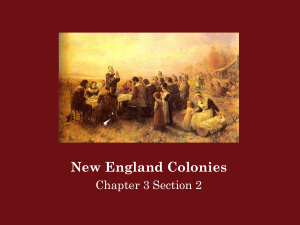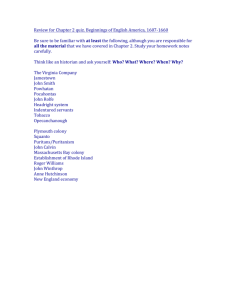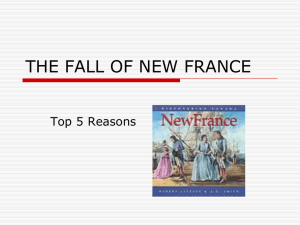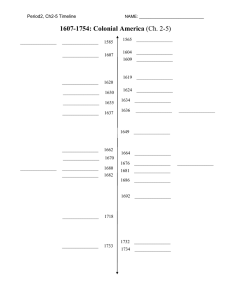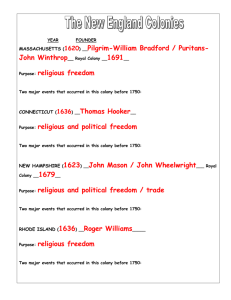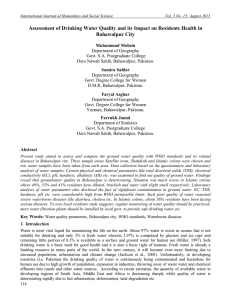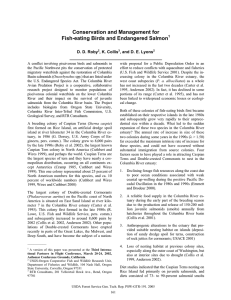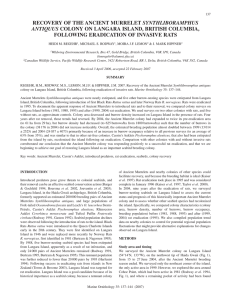Chapter 3 Vocabulary
advertisement
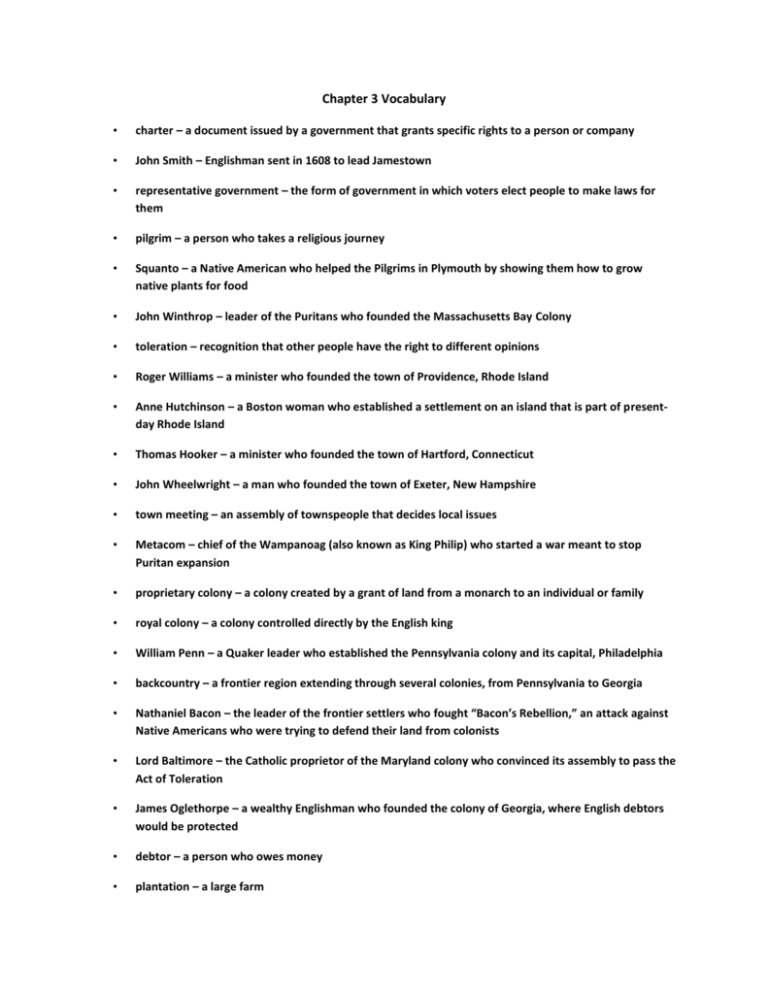
Chapter 3 Vocabulary • charter – a document issued by a government that grants specific rights to a person or company • John Smith – Englishman sent in 1608 to lead Jamestown • representative government – the form of government in which voters elect people to make laws for them • pilgrim – a person who takes a religious journey • Squanto – a Native American who helped the Pilgrims in Plymouth by showing them how to grow native plants for food • John Winthrop – leader of the Puritans who founded the Massachusetts Bay Colony • toleration – recognition that other people have the right to different opinions • Roger Williams – a minister who founded the town of Providence, Rhode Island • Anne Hutchinson – a Boston woman who established a settlement on an island that is part of presentday Rhode Island • Thomas Hooker – a minister who founded the town of Hartford, Connecticut • John Wheelwright – a man who founded the town of Exeter, New Hampshire • town meeting – an assembly of townspeople that decides local issues • Metacom – chief of the Wampanoag (also known as King Philip) who started a war meant to stop Puritan expansion • proprietary colony – a colony created by a grant of land from a monarch to an individual or family • royal colony – a colony controlled directly by the English king • William Penn – a Quaker leader who established the Pennsylvania colony and its capital, Philadelphia • backcountry – a frontier region extending through several colonies, from Pennsylvania to Georgia • Nathaniel Bacon – the leader of the frontier settlers who fought “Bacon’s Rebellion,” an attack against Native Americans who were trying to defend their land from colonists • Lord Baltimore – the Catholic proprietor of the Maryland colony who convinced its assembly to pass the Act of Toleration • James Oglethorpe – a wealthy Englishman who founded the colony of Georgia, where English debtors would be protected • debtor – a person who owes money • plantation – a large farm
